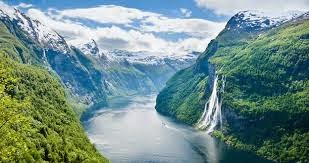Republic of Germany (German: Bundesrepublik Deutschland,pronounced [ˈbʊndəsʁepuˌbliːk ˈdɔʏtʃlant] ,s a federalparliamentary republic in western-central Europe consisting of 16constituent states, which retain limited sovereignty. Its capital city andlargest city is Berlin. Germany covers an area of 357,021 square kilometres (137,847 sq mi) and has a largely temperate seasonal climate. With 80.6 million inhabitants, it is the most populous member state in the European Union. Germany is a major economic and political power of the European continent and a historic leader in many cultural, theoretical and technical fields.
Various Germanic tribes have occupied what is now northern Germany and southern Scandinavia since classical antiquity. A region namedGermania was documented by the Romans before AD 100. During theMigration Period that coincided with the decline of the Roman Empire, the Germanic tribes expanded southward and established kingdoms throughout much of Europe. Beginning in the 10th century, German territories formed a central part of the Holy Roman Empire.Protestant Reformation. Occupied during the Napoleonic Wars, the rise of Pan-Germanism inside the German Confederation resulted in theunification of most of the German states in 1871 into the German Empire, which was dominated by Prussia.
During the 16th century, northern German regions became the centre of the
After the German Revolution of 1918–1919 and the subsequent military surrender in World War I, the Empire was replaced by the parliamentaryWeimar Republic in 1918 and lost some of its territory in the Treaty of Versailles. Despite its lead in many scientific and cultural fields at this time, Germany experienced significant economic and political instability which intensified during the Great Depression. The establishment of theThird Reich or Nazi Regime in 1933 eventually led to World War II and the Holocaust. After 1945, Germany was divided by Allied occupation, and evolved into two states, East Germany and West Germany. In 1990, the country was reunified.
Germany has the world's fourth-largest economy by nominal GDP and the fifth-largest by purchasing power parity. As a global leader in several industrial and technological sectors, it is both the world's third-largest exporter and third-largest importer of goods. It is a developed country with a very high standard of living, featuring comprehensivesocial security that includes the world's oldest universal health caresystem. Known for its rich cultural and political history, Germany has been the home of many influential philosophers, artists, musicians,scientists, and inventors. Germany was a founding member of theEuropean Community in 1957, which became the EU in 1993. It is part of the Schengen Area, and has been a member of the eurozone since 1999. Germany is a great power, and a member of the United Nations,NATO, the G8, the G20, the OECD and the Council of Europe.








.jpg)